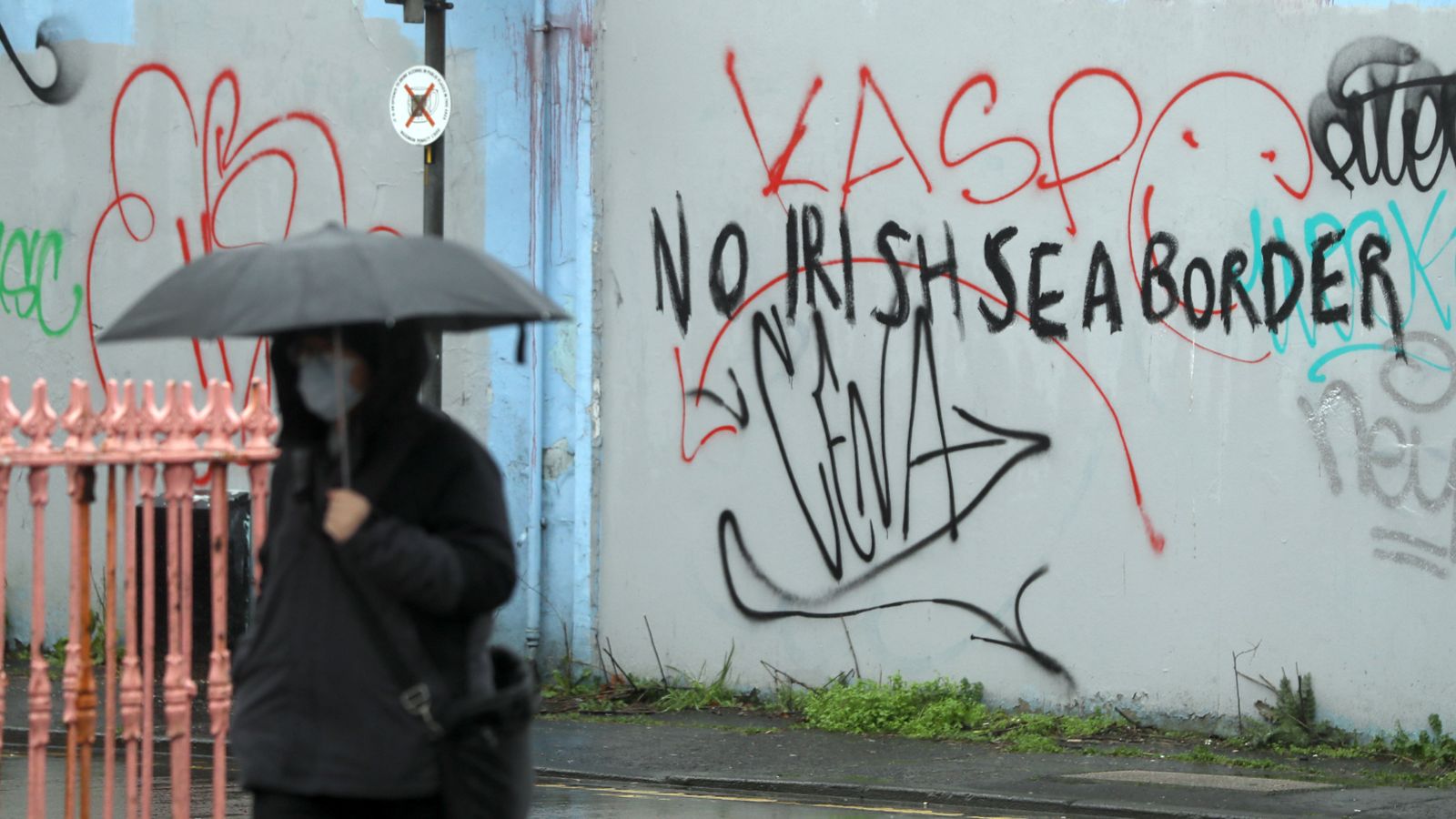Loyalist paramilitary groups in Northern Ireland have withdrawn their support for the Good Friday Agreement in protest at post-Brexit border arrangements.
In a letter to Prime Minister Boris Johnson, the Loyalist Communities Council (LCC) said they no longer backed the 1998 peace deal due to the impact of the Northern Ireland Protocol.
They called for the Protocol, a key part of the UK’s divorce deal with the EU aimed at avoiding a hard border on the island of Ireland, to be amended following weeks of issues with trade between Great Britain and Northern Ireland.
“I have been instructed to advise you that the Loyalist Groupings are herewith withdrawing their support for the Belfast Agreement and its Institutions until our rights under the Agreement are restored and the Protocol is amended to ensure unfettered access for goods. services, and citizens throughout the United Kingdom,” wrote LCC chairman David Campbell.
“If the EU is not prepared to honour the entirety of the Agreement then it will be responsible for the permanent destruction of the Agreement.
“The LCC is prepared to play a meaningful role in seeking a workable solution however a starting point has to be the acceptance that a hard border on the island of Ireland, or between Northern Ireland and the rest of the United Kingdom has no cross-community support here and is therefore untenable.”
The LCC represents paramilitary groups the Ulster Volunteer Force, Ulster Defence Association and Red Hand Commando.
The letter stressed the LCC leadership “is determined that unionist opposition to the Protocol should be peaceful and democratic”.
They also urged the prime minister to trigger Article 16 of the Protocol, which is intended to be used when the arrangement is unexpectedly leading to serious “economic, societal or environmental difficulties”.
It allows the UK or the EU to act unilaterally to avoid these difficulties.
The warning to Mr Johnson comes after his government was accused of being untrustworthy over continued negotiations about the implementation of the Protocol.
On Wednesday, the UK took unilateral action to extend grace periods for businesses such as supermarkets and parcel operators, before they have to comply with new rules under the terms of the Protocol, until October.
Light-touch regulation schemes on goods from the rest of the UK transiting to Northern Ireland had been due to expire at the end of March.
Lord Frost, the newly-appointed cabinet minister responsible for EU-UK relations, spoke to European Commission vice-president Maros Sefcovic on Wednesday night and said the measures were “temporary technical steps”.
He added the action was “needed for operational reasons and were the minimum necessary steps” to allow time for UK-EU discussions to “continue without the prospect of disruption to the everyday life of people in Northern Ireland in the coming weeks”.
Earlier on Wednesday, the European Commission accused the UK of seeking to breach international law and described the action as “a clear departure from the constructive approach that has prevailed up until now”.
Subscribe to the Daily podcast on Apple Podcasts, Google Podcasts, Spotify, Spreaker
Ireland’s foreign affairs minister, Simon Coveney, raised the prospect of the EU taking legal action against the UK following the latest row over the Protocol.
“This is not the first time this has happened that they are negotiating with a partner that they simply cannot trust,” he told RTE Radio 1 on Thursday.
“That is why the EU is now looking at legal options and legal actions which effectively means a much more formalised and rigid negotiation process as opposed to a process of partnership where you try to solve problems together, so this is really unwelcome.”
Earlier this year, the EU threatened – and then abandoned – an attempt to invoke Article 16 as part of the bloc’s row with drugmakers over COVID vaccines and its efforts to introduce export controls on jabs.

